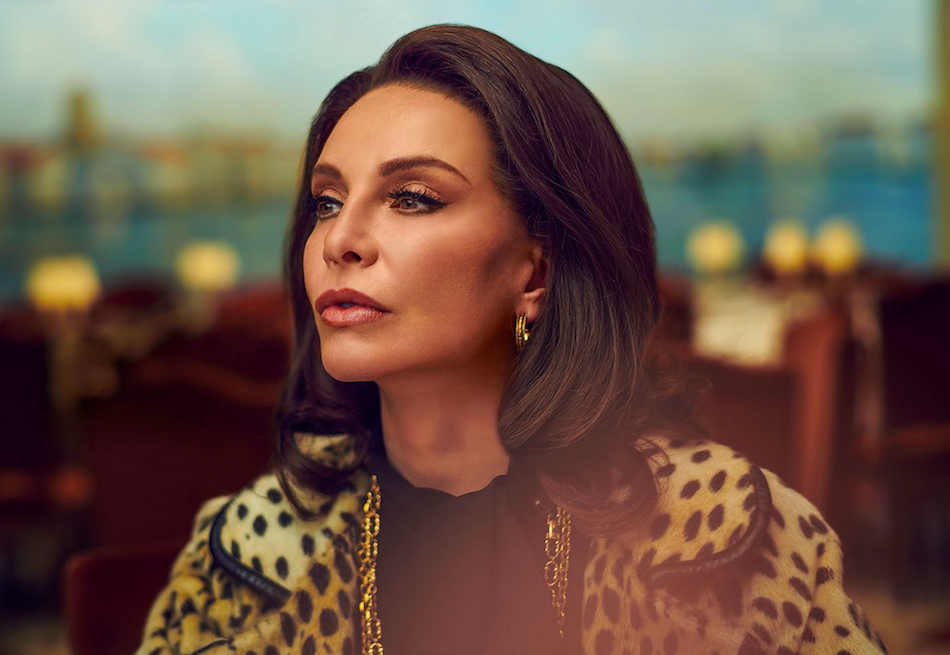A betrayal in the friendship between Truman Capote and the Swans takes a dark turn when the former decides to write a book about them, revealing the secrets they had intimated to him for the whole world to see. Hulu’s ‘Feud: Capote vs the Swans’ focuses on this discord between former friends and how it changes their lives forever. One of Capote’s beloved Swans was Lee Radziwill. After Capote’s betrayal, she is quick to ostracise him, but the flashbacks reveal that there might have been something amiss between the duo since the beginning. Is it true? What was the true nature of Lee Radziwill and Truman Capote’s friendship, and did they ever overcome their differences? SPOILERS AHEAD
Lee Radziwill and Truman Capote Enjoyed a Close Friendship
Lee and Capote first met in 1962 for lunch at a restaurant in New York, and they forged an immediate bond when Lee confided in Capote about her immense jealousy for her sister, Jackie Kennedy. Capote later told his friend Cecil Beaton all about their conversation, but that didn’t faze Lee. As time passed, the two became closer than ever, with Lee, at one point, calling Capote like her brother, “except that brothers and sisters are rarely as close as we are.”
Over the years, Lee talked to Capote about everything: from her marriage with Stanisław Albrecht Radziwiłł, which had gone stale, to the many affairs that she enjoyed during her marriage. She also talked about her envy of her older sister and was especially expressive of it when Jackie stole Ari Onassis from her. She felt she could tell Capote everything because he, in turn, became her biggest, most loyal supporter.
In 1967, he cast her in the productions of ‘The Philadelphia Story’ and ‘Laura,’ hoping to help her build a career in acting and become a star, but that career wasn’t meant to be for her. Later, he took every opportunity he got to talk about how great a person she was and how she was always overshadowed by her sister when, in fact, she was the better of the two. Lee showed her appreciation for Capote by giving him a cigarette case with gold lining that was inscribed with “To my Answered Prayer, with love, Lee. July 1967.” This shows that Lee was aware of the novel that Capote was working on. However, she didn’t know how far it would go to destroy his bond with the Swans.
It is believed that Capote felt this sense of devotion for Lee because he related to her. Lee had grown up in her sister’s shadow and knew that whatever happened in her life, Jackie would always take the cake. When Jackie became the First Lady, things got even worse for Lee, and she always felt like an outcast whenever her sister was around. Capote could relate to that, being a gay man who had seen his fair share of days as an outcast.
Lee Radziwill Turned Against Truman Capote During a Legal Battle
While most swans had ostracised Truman Capote following his Esquire article, it is said that things didn’t change as much between him and Radziwill. That was until Gore Vidal sued him with a $1 million lawsuit, and Lee’s testimony became instrumental in deciding who would win the case.

Capote had gossiped with Playgirl magazine and talked about an incident where Vidal misbehaved at the White House one night and was thrown out of a party by the Kennedys, where Lee was also present. Vidal sued him, and Capote claimed that the gossip was true because Lee told her all about it. When it came to determining the truth, Capote expected Lee to sign a deposition where she would confess to having told him about the incident. It was a huge shock to him when Lee signed a deposition in favor of Vidal.
Lee’s blows didn’t just stop there. She later called the Capote-Vidal feud “just a fight between two fags” and considered it “disgusting” to have been dragged into it. This was when Capote decided that he’d had enough of her and decided to go all out about everything she’d confided in him over the years. He called WCBS and made a deal with them to appear on the Stanley Siegel show, where he would talk about all of her dirty little secrets. That became the final nail in the coffin of the duo’s friendship, and they never became friends again.
Read More: John O’Shea and Truman Capote’s Turbulent Relationship, Explained


You must be logged in to post a comment.